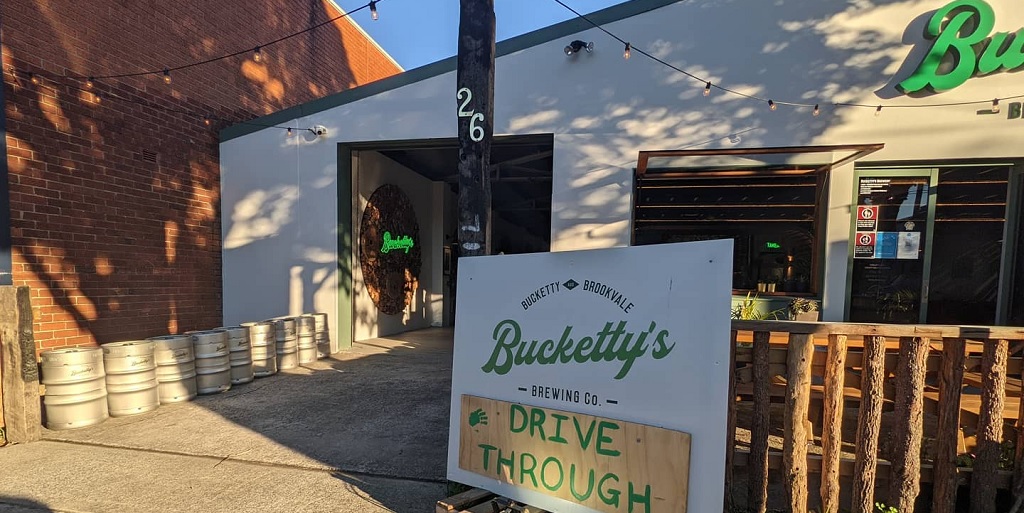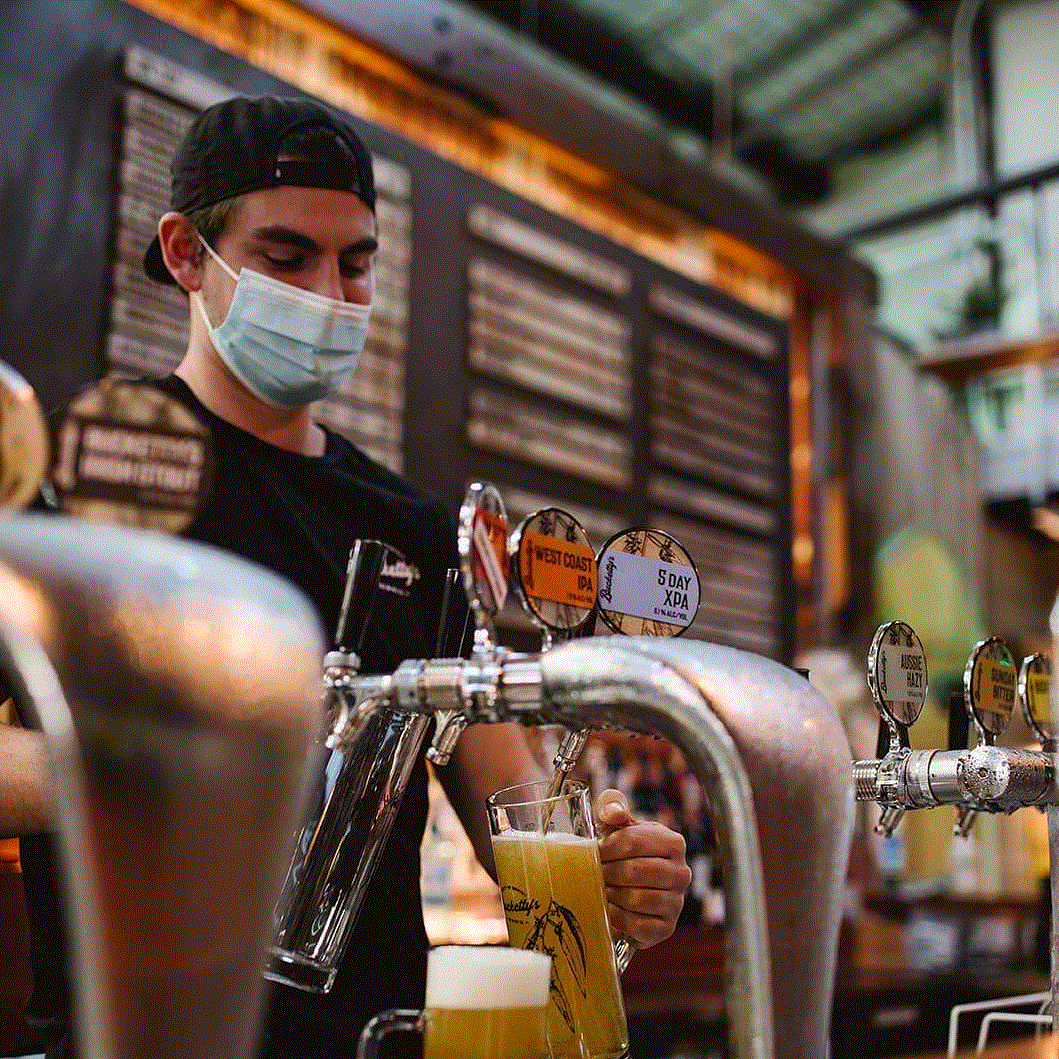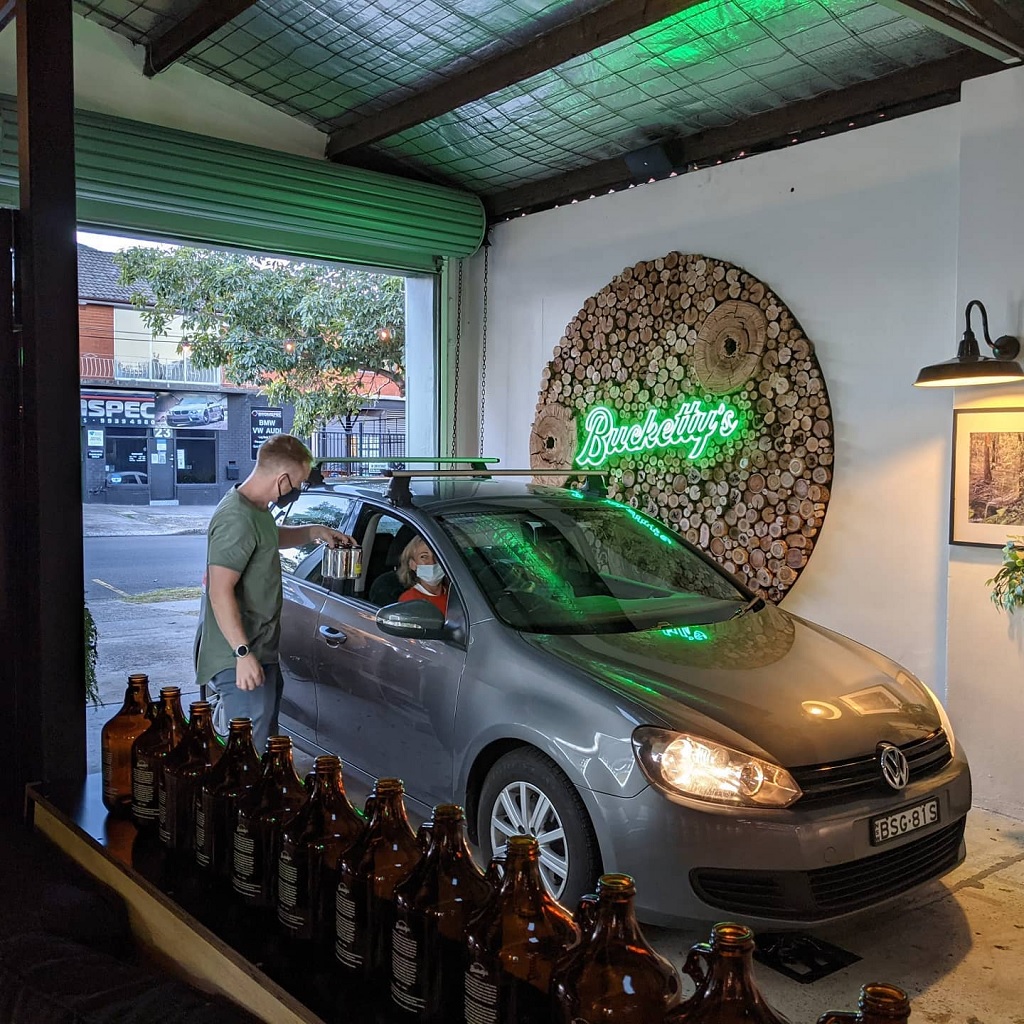
The breweries that have never known ‘normal’
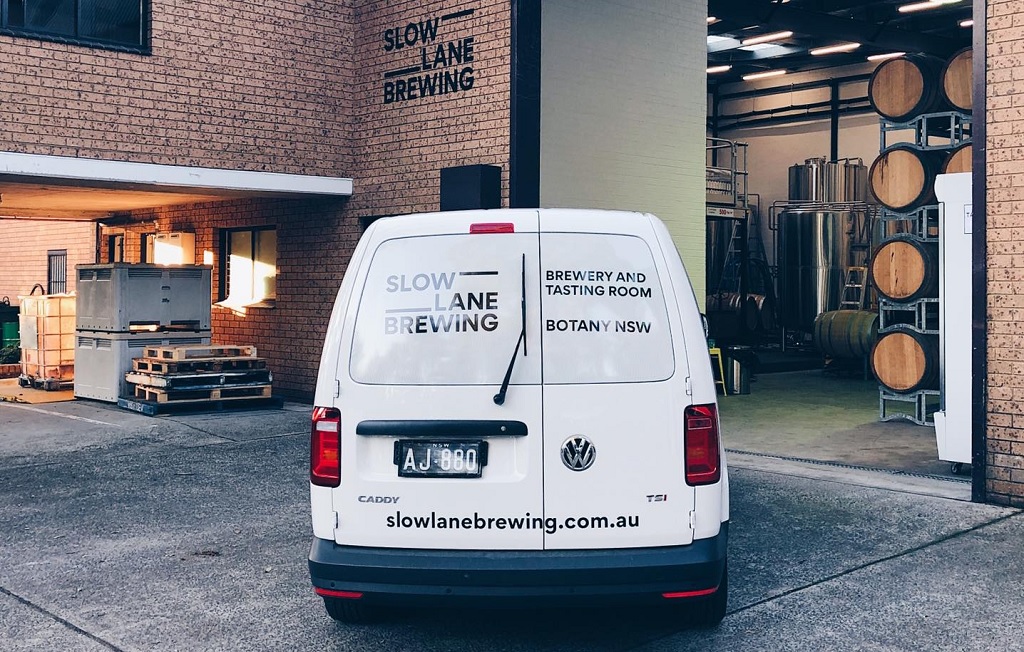
Startup breweries have opened this year in a brave new world and are being faced with hurdles they never would have imagined when they started planning their brewery projects.
These breweries, including the likes of Slow Lane Brewing in Botany, and Bucketty’s in Brookvale, have faced the challenges common to startups the world over. But they have also had to deal with the restrictions and snap lockdowns which have proven taxing to even more established breweries.
“When we first opened we had to open with everyone in masks and everyone had to be seated,” explained Nick McDonald, co-founder at Bucketty’s which launched in February this year after a challenging development process.
“A few weeks later people could stand up and dance, we became a bit of a live music venue in the area, which has been amazing.
“But then we had restrictions put back for a couple of weeks, and people just don’t like to sit down drinking beer! It’s tough because you have to be stricter than you want to, but having to shut the doors has been even tougher.”
Opening up after the worst is over meant that people have learnt the lessons of the first lockdown and ongoing restrictions.
“There’s that uncertainty I guess, that’s mainly it, but as this lockdown has happened, people are more relaxed about it, there’s not so much fear – it’s more frustration,” said McDonald.
“People are good at doing the check-ins and sanitation, everyone has done it before so it’s not as big or scary.”
It has been a big learning curve in aspects of running a business that breweries launched pre-COVID would never have had to consider.
“We had to be creative with space planning when we were thinking about how to do social distancing – customers are understanding, they’re as frustrated as we are.”
Bucketty’s was forced to get creative quickly during the lockdowns last month, and it reconstructed its taproom into a drive-through to sell takeaway beer, as many established breweries did during COVID.
“We got the notification at 2pm on Saturday that we’d get locked down so we got everyone out by 6pm and turned the whole venue upside down. We pulled apart furniture and the live music stage and were able to turn it into a drive-through and had our first customer in the hour after that.
“We have to sell beer to stay afloat, so doing the drive-through thing is a cool pivot, it creates some buzz and an experience.”
Elsewhere in NSW, Alex and Yvonne Jarman opened Slow Lane Brewing in January, after putting the taproom project on pause during COVID and focusing on wholesale.
“It’s very hard work. You are constantly reacting and changing your approach based on customer feedback, based on what’s going on – whether we’re in lockdown or there’s new restrictions in place.
“Reacting and changing your approach like what beers to have in your repertoire, what proportion you can, how to market.
“[We learned that] we need to react quickly and mobilise our staff quickly,” explained Alex Jarman.
“With the bar closed for on-premises drinking, we have changed our operating hours to do takeaways daily, as opposed to only Friday to Sunday when the bar is open. We are also offering same-day local delivery.”
But there are other issues new breweries are having to contend with which are much more long-term.
Going into packaged
Deciding to go into packaged beer is a major decision for any brewery, and COVID-19 prompted a seismic shift by smaller breweries towards packed beer to offset the losses from venue closures.
But for startup breweries who never had wholesale in their initial plans, it has been a minefield.
“We actually just got our cans in a couple of local bottleshops recently, but sending five cases 10 minutes away to make $100 dollars, is it worth it?
“It’s great to get beer into bottleshops, but unless you’re doing massive volumes, it’s barely worth doing on the small scale, it’s good for the brand but financially it’s not that helpful,” reasoned McDonald.
“Wholesale is good to turn over stock so they’re not sitting around for too long, but for paying bills it’s negligible.”
At Slow Lane, however, the team decided to focus on wholesale first during the pandemic, and Alex explained it was about being even more flexible with business plans and strategies than ever before.
“Initially we were focused on opening our brewery tasting bar in the first half of 2020,” said Jarmon.
“However, when COVID hit, we decided to delay the opening and focus on wholesale and takeaway and online sales. We were canning the majority of the beer we produced and the bar eventually opened in January 2021.
“[But we had] a bigger focus on wholesale and takeaway and online marketing and sales.
“With more customers consuming your beers at home, you need to be more focused on the quality of your beers in cans. Their first experience of your beers might now be through a can versus at the brewery.”
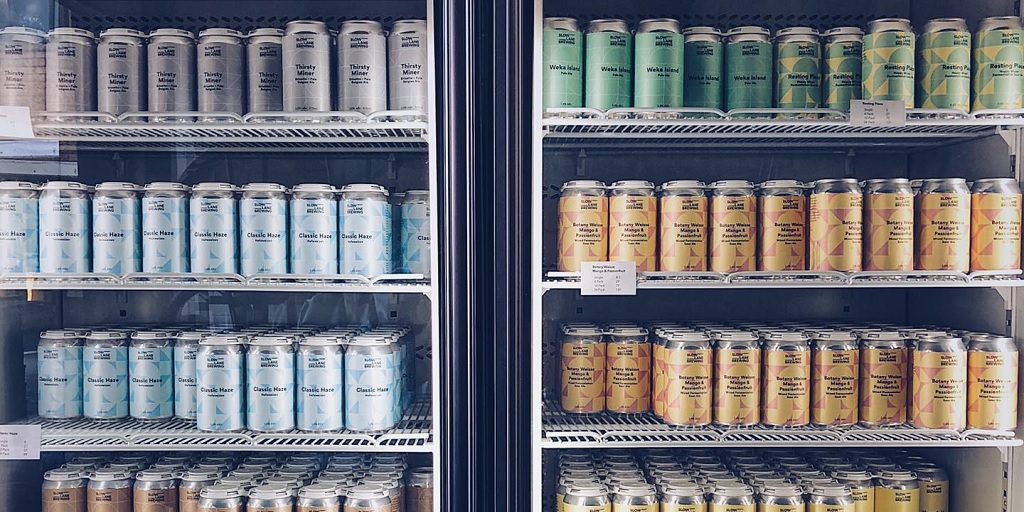
Financial uncertainty
Small companies already have it tough for their first few years of business. According to the 2020 Small Business Counts report, small up to medium businesses had an average 65 per cent chance of survival over five years.
When they manage to stay afloat, startup businesses rarely make a profit in the first year, with some estimates suggesting it may take three to four years for a business to turn a profit – depending on industry, startup investment and a whole lot of other factors.
But in addition to these startup pressures, new breweries are facing lockdowns and restrictions with subsequent loss of trade, but also without the package of government support and benefits which was launched last year but which have been largely phased out.
“We’ve been busy since we opened so we’ve been building up cash reserves but that’s depleted now, a couple of weeks shut is huge – it costs to keep the place open,” said Mcdonald.
“Our business is 99 per cent over the bar in the taproom, we don’t have wholesale to fall back on.
“Having some cash reserves has been good, if we didn’t have that it would have been more stressful, we can hang on for a few weeks, as long as lockdown doesn’t go into months.”
At Slow Lane, the team have tried to take into account any potential COVID-related disruption.
“We’re fairly conservative with our forecasts, but it’s pretty difficult or impossible to predict lockdowns to be able to factor in the loss of revenue,” explained Jarman.
“Even if there isn’t a lockdown, we expect there to be restrictions on how our brewery tasting bar can operate. It seems normal for us now.”

